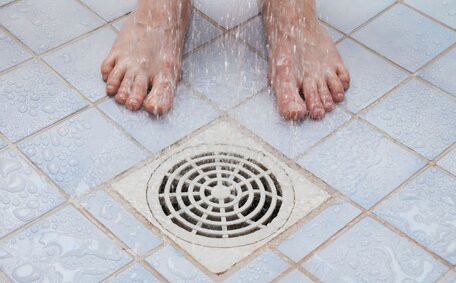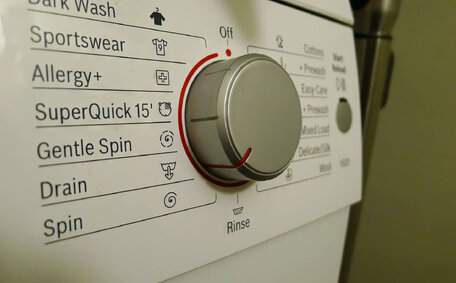
Baking Soda & Vinegar for Cleaning
Using baking soda & vinegar separately for cleaning is very effective; but mixing them dilutes their cleaning power. Learn how to use them properly.
Read MoreIn Australia, every licensed plumber is required by law to hold public liability insurance, which protects homeowners if a plumber causes damage or injury.
This guarantee offers homeowners a secure resolution managed by the plumbers’ company.
The requirement for plumbers to carry an insurance policy, supported by homeowners insurance helps ensure your plumbing work is backed by protection if faulty work or accidents occur. For example, public liability coverage in an emergency plumbing scenario would cover expenses such as water damage from a plumber-caused burst pipe. It instils confidence in homeowners when hiring a skilled plumber for your plumbing needs by mitigating high liability risks.
Homeowners can have peace of mind knowing their plumber’s insurance will handle any unforeseen issues during repairs. This provides solid backing for resolving plumbing issues anytime, reducing risk and burden for homeowners.
Having deep insights about plumbing regulations, our team is well-versed in the Australian requirements that licensed plumbers maintain public liability and worker’s compensation coverage. Plumbing companies often extend their insurance coverage to offer additional protection to customers. This coverage becomes particularly vital for home emergencies including emergency plumbing services, instilling confidence in homeowners that potential repair issues are financially supported through insurance claims.
Several home insurance policy options often only cover sudden plumbing mishaps and accidental scenarios like burst pipes or sewer backups. Home insurance typically covers the cost of leak detection and the ensuing repairs to walls, floors, and household contents damaged by water.
According to insurance statistics, around 25% of all home insurance claims are for water damage, where Your coverage encompasses more than just basic plumbing failures or appliance issues. Burst water pipes, a common issue, are usually included in home insurance policies.
Flexible braided hoses, also known as flexi hoses, similar to tap connectors and toilet cisterns, can burst over time, often necessitating a professional to fix the problem which is typically covered by insurance. If these hoses fail and cause water damage, your policy may provide coverage for such incidents. Understanding what isn’t covered is key, such as gradual leaks or general wear and tear, which usually aren’t included in insurance plans.
A burst or leaking hot water system can also cause considerable water damage to your property. Most insurance policies cover damage including the repair costs or the cost to replace hot water systems after a sudden event that causes water damage to your property. While regular maintenance isn’t covered, damage from systems like a corroded gas hot water setup is typically claimable.
If you experience a gas leak in your gas system, rest assured it’s typically covered under your home insurance. Most policies cover the costs to locate and repair leaks in faulty gas pipes or appliances, as well as any resultant fire or explosion damage.
In a plumbing emergency, it’s important to turn off the water supply to prevent further damage and then call an emergency plumber for expert help. Then ascertain how your local plumber can undertake repairs as soon as possible, and get in contact with your insurer to make a claim if needed. Our Gold Coast team is available around the clock to ensure your emergency plumbing situation is handled with expertise and precision.
When faced with a plumbing emergency, the first priority is to ensure your water leaks stop and prevent further damage. If pipes burst or electrical fixtures are compromised, immediately shut off the main water supply valve.
Take photos and videos, or explain the situation thoroughly over phone when documenting the damage, then consult with your insurance provider on how to initiate a claim for the damage caused. Furnish your report with details such as date, location, cause, and the full extent damage to expedite the claims process.
Work quickly with the claims adjuster to confirm your coverage and facilitate a prompt property inspection. As representatives of your insurance company, claims adjusters assess the plumbing issue and record the damage, clarifying your policy’s coverage and settlement details. Be ready to present areas affected by water, including walls, floors, and ceilings.
Engage a plumber for your property as soon as possible to fix the problem and provide necessary documentation like invoices to support your claim. Your policy typically requires the use of qualified professionals to undertake repairs specific to your plumbing needs. Our 24 hour emergency plumbing team can assist.
While waiting for repairs, take reasonable steps to protect your property from further damage where safe to do so. For example, deploying containers to catch drips or use water-absorbing towels to mitigate small leaks.
Reach out to us at any time for immediate plumbing repairs and assistance; we’re here to provide support 24/7. Our team of fully licensed plumbers is ready to assist you 24/7.
Plumbing emergencies can happen and significant damage can occur, leading to costly repercussions if not addressed swiftly. Several preventative maintenance tips can help homeowners avoid such emergencies:
Every 3-6 months, perform visual inspections and routine maintenance throughout your house. Inspect under sinks for leaks, examine exposed pipes and drains, and be vigilant for signs of water damage. Regular checks and tests can identify early signs of water trouble, allowing for repairs before situations escalate to emergencies.
Familiarise yourself with your water meter and main line shut-off valves, ensuring you can read the meter accurately. Ensure valves are marked clearly and that they function properly on your own.
Actively replace worn fixtures, connectors, and pipes likely to be affected by water pressure to prevent problems. Prioritize daily-use appliances like water heaters, washing machine hoses, and toilet components, especially those nearing the end of their service life. Upgrading before emergencies occur helps avoid situations that could damage your home.
Uninsulated pipes in cold areas like garages or crawl spaces are prone to freezing and bursting. Insulating these pipes is crucial in maintaining water flow and preventing them from cracking.
Clogged drains or gutters can lead to leaks, damaging foundations and walls, and may require extensive repairs. Establish a quarterly routine for clearing debris from around your home to prevent clogs.
Implementing these simple preventative measures will help avoid the stress and disruption of a plumbing emergency. Contact our team for more information or if you have any questions about your plumbing needs or require repairs.
Using baking soda & vinegar separately for cleaning is very effective; but mixing them dilutes their cleaning power. Learn how to use them properly.
Read MoreBlocked drains are usually caused by buildup of hair, grease, debris and more in your pipes. Fix the problem with professional drain unblocking services to get your drains flowing freely again. Contact us for affordable drain unblocking.
Read MoreWhen you suspect a gas leak or damaged gas line, contact a licensed gas fitter immediately to locate and repair it. A gas line repair involves sealing leaks, replacing corroded or damaged pipes and testing all connections for safety before restoring gas supply.
Read MoreLilyfield, 2040 NSW
We will call back as soon as possible.




